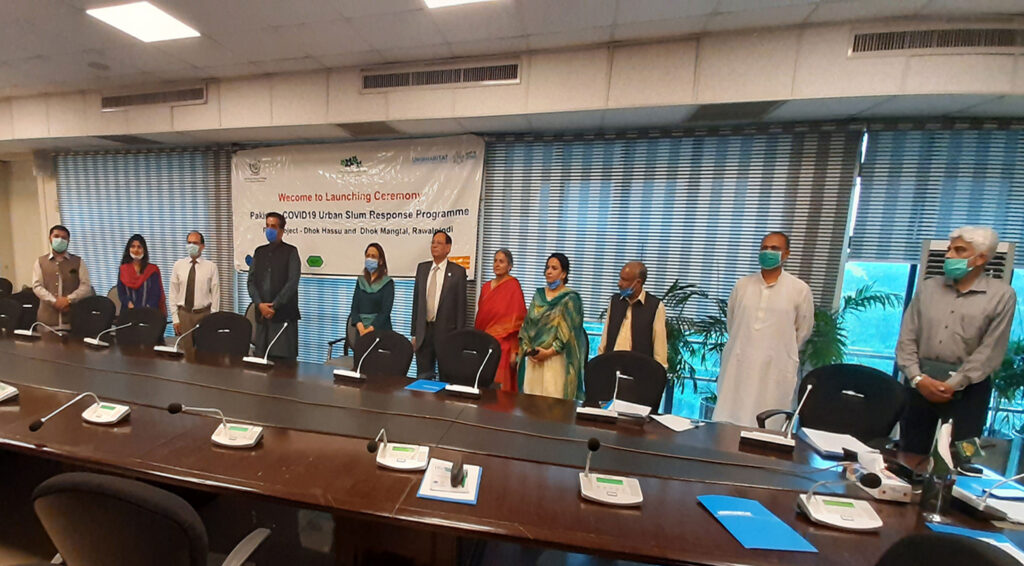Pakistan COVID-19 Urban Slums Response Programme (PCSURP)
 Pilot Project Dhok Hassu & Dhok Mangtal, Rawalpindi
Pilot Project Dhok Hassu & Dhok Mangtal, Rawalpindi
The COVID-19 pandemic is globally destabilizing and devastating lives and livelihoods, and Pakistan is no exception. The current outbreak of coronavirus (COVID-19) continues to impact the lives of the people in Pakistan. The country has witnessed significant increase in its confirmed cases from the initial two cases on 26th February 2020 to approximately 12,723 as of 26th April 2020. The COVID-19 pandemic will hit the world’s most vulnerable people the hardest including the one billion people living in informal settlements and slums worldwide. Informal settlements and slums are particularly vulnerable because of their overcrowding, lack of access to water, sanitation and formal health services, and food insecurity. The known solutions to slow transmission of the virus (self-isolation, quarantine, physical distancing, contact tracing, etc.) are very hard to apply in these settings. As the UN Secretary-General’s Report on “Shared responsibility, global solidarity (SG’s Report) points out, if the virus is not managed in these deeply fragile contexts, the global risk for continuous spread of the virus will remain. Action now requires strong global solidarity.
The SG’s Report calls to action, for the immediate health response required to suppress transmission of the virus to end the pandemic; and to tackle the many social and economic dimensions of this crisis, while focusing on the most vulnerable.
In Pakistan, the continuing spread of the COVID-19 crisis threatens the most vulnerable communities, particularly people living in slums and informal settlements. There is a high risk that the impacts of COVID-19 on the urban poor living in slums will be considerably higher compared to other areas as maintaining social distancing and enforcement of self-isolation is extremely difficult in overcrowded areas. The Chief Minister of Sindh has already drawn attention to the tears of spread, for instance, is reported to have expressed his fears of spread of COVID-19 in squatter settlements (Katchi Abadis) of larger urban centers of Sindh—Pakistan’ most urbanized province. The Karachi Urban Lab has rightly argued that COVID-19 crisis is an urban crisis (Daily Dawn, 30 March 2020). Awareness level on preventive measures to stop the spread of COVID19 is generally low in urban slums.
To address the crisis, UN-Habitat launched a pilot project of “Pakistan COVID19 Urban Slums Response Programme” (PCUSRP) in collaboration with Ministry of Climate Change, Shersaaz, and National Cleaner Production Center on 11 May 2020. The aim of the pilot was to support local community to prevent spread of COVID19 in most vulnerable group i.e. urban slums, providing urban data for informed decision making and mitigating economic impacts of COVID19.
The socio-economic impact of COVID-19 and health response measures such as lockdowns in urban areas is not limited to only reduced income or loss of livelihood. The strong relationship between the informal and formal economy often remains misunderstood and mitigation measures are often limited only to the formal sector.
